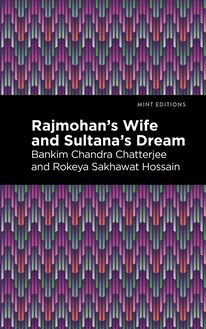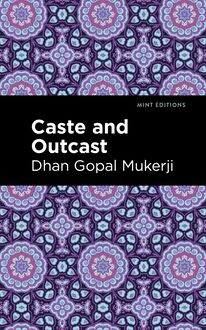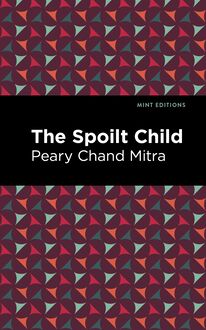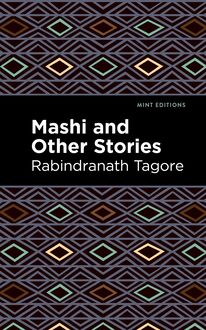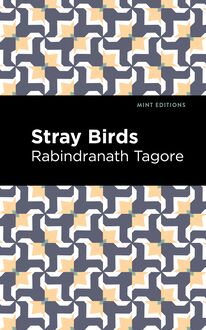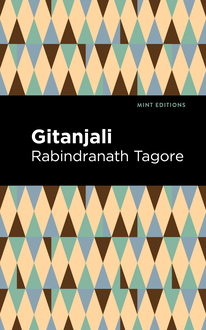-
 Univers
Univers
-
 Ebooks
Ebooks
-
 Livres audio
Livres audio
-
 Presse
Presse
-
 Podcasts
Podcasts
-
 BD
BD
-
 Documents
Documents
-
- Cours
- Révisions
- Ressources pédagogiques
- Sciences de l’éducation
- Manuels scolaires
- Langues
- Travaux de classe
- Annales de BEP
- Etudes supérieures
- Maternelle et primaire
- Fiches de lecture
- Orientation scolaire
- Méthodologie
- Corrigés de devoir
- Annales d’examens et concours
- Annales du bac
- Annales du brevet
- Rapports de stage
La lecture à portée de main

Vous pourrez modifier la taille du texte de cet ouvrage
Découvre YouScribe en t'inscrivant gratuitement
Je m'inscrisDécouvre YouScribe en t'inscrivant gratuitement
Je m'inscrisEn savoir plus
Vous pourrez modifier la taille du texte de cet ouvrage
En savoir plus

Description
Govinda Samanta: Or the History of a Bengal Raiyat (1874) is a novel by Lal Behari Dey. Inspired by a lifetime dedicated to serving the poor and oppressed, Lal Behari Dey wrote Govinda Samanta in order to portray the life of Bengali peasants in a positive, human light. Praised by Charles Darwin, awarded a substantial prize by a prominent Bengali zamindar, Lal Behari’s novel is a masterpiece of Bengali literature. “It was considerably past midnight one morning in the sultry month of April, when a human figure was seen moving in a street of Kánchanpur, a village about six miles to the north-east of the town of Vardahamána, or Burdwán. There was no moon in the heavens, as she had already disappeared behind the trees on the western skirts of the village…” After introducing his novel with a brief warning to readers, Lal Behari opens his story with a beautiful description of village life in Bengal. In episodic fashion, he follows one “human figure” after another, each of them enriching his description of his native land. Centered on the raiyat boy Govinda, the story follows the journey from innocence to experience of a youth shaped by the stories and traditions of his village. Opposed to flowery language and romanticism, he hopes to tell “a plain and unvarnished tale of a plain peasant, living in this plain country of Bengal.” Praised upon publication, Govinda Samanta: Or the History of a Bengal Raiyat is a compelling and understated narrative of working-class life from an author who dedicated his own life to serving the poor. With a beautifully designed cover and professionally typeset manuscript, this edition of Lal Behari Dey’s Govinda Samanta: Or the History of a Bengal Raiyat is a classic work of Bengali literature reimagined for modern readers.
Sujets
Informations
| Publié par | Mint Editions |
| Date de parution | 01 juin 2021 |
| Nombre de lectures | 0 |
| EAN13 | 9781513288352 |
| Langue | English |
| Poids de l'ouvrage | 2 Mo |
Informations légales : prix de location à la page 0,0500€. Cette information est donnée uniquement à titre indicatif conformément à la législation en vigueur.
Extrait
Govinda Sámanta
Or the History of a Bengal Ráiyat
Lal Behari Dey
Govinda Sámanta : Or the History of a Bengal Ráiyat was first published in 1874.
This edition published by Mint Editions 2021.
ISBN 9781513283333 | E-ISBN 9781513288352
Published by Mint Editions®
minteditionbooks .com
Publishing Director: Jennifer Newens
Design & Production: Rachel Lopez Metzger
Project Manager: Micaela Clark
Typesetting: Westchester Publishing Services
Let not ambition mock their useful toil,
Their homely joys, and destiny obscure;
Nor grandeur hear, with a disdainful smile
The short and simple annals of the poor.
— Gray
C ONTENTS I. P REMISES WHAT THE R EADER IS TO E XPECT , AND WHAT HE IS NOT TO E XPECT , IN THIS A UTHENTIC H ISTORY II. I NTRODUCES AN O LD W OMAN TO THE R EADER III. S KETCHES A V ILLAGE IN B ENGAL IV. D ESCRIBES A R URAL S CENE , AND USHERS OUR H ERO INTO THE W ORLD V. P HOTOGRAPHS A R ÁIYAT ’ S C OTTAGE , AND THOSE WHO LIVE IN IT VI. F IXES THE F ATE AND N AME OF OUR H ERO VII. T HE P ROTECTRESS OF C HILDREN VIII. T HE V ILLAGE A STROLOGER IX. A N I MPORTANT D ISCUSSION X. T HE F IVE - FACED XI. H OUSEHOLD M ATTERS XII. T HE V ILLAGE S CHOOLMASTER XIII. T HE M ATCH M AKER XIV. M ALATI ’ S M ARRIAGE XV. T HE V ÁSARGHAR XVI. T HE V ILLAGE G HOST XVII. G OVINDA A T S CHOOL XVIII. T HE S ATÍ XIX. E VENINGS AT H OME XX. T HE H INDU W IDOW XXI. O DDS AND E NDS XXII. P ASTORAL S CENES XXIII. G OVINDA ’ S F RIENDS XXIV. G REAT S ENSATION IN THE V ILLAGE XXV. T HE V ILLAGE M ARKET XXVI. L ADIES ’ P ARLIAMENT XXVII. T HE N ECTAR - MOUTHED M OTHER - IN - LAW XXVIII. E VENTS AT D URGÁNAGAR XXIX. A LL ABOUT P ADDY XXX. T HE N AVÁNNA XXXI. T HE H ARVEST XXXII. M ATTERS H YMENEAL XXXIII. T HE S UGAR - CANE XXXIV. Á DURI BECOMES A V AISHNAVI XXXV. A LANGA GOES ON P ILGRIMAGE XXXVI. T HE C AR F ESTIVAL XXXVII. B ENGAL F EVER AND THE V ILLAGE L EECH XXXVIII. T HE S ITUATION XXXIX. T HE Z AMINÁDR OF K ÁNCHANPUR XL. P OLITICS AT THE S MITHY XLI. B EFORE THE Z AMINDÁR XLII. T HE I NDIGNATION M EETING XLIII. F IRE ! F IRE ! XLIV. T HE M AHÁJAN XLV. T HE V ILLAGE G ROG - SHOP XLVI. T HE I NDIGO -P LANTER OF D URGÁNAGAR XLVII. T HE A DVANCES XLVIII. T HE Z AMINDÁR OF D URGÁNAGAR XLIX. A LL A BOUT I NDIGO L. B ENGALI H EROISM LI. T HE A FFRAY LII. W HAT H APPENED IN F ATHER - IN - LAW ’ S H OUSE LIII. T HE P OLICE I NVESTIGATION LIV. M ÁDHAVA ’ S E ND LV. T HE L ARES AND THE P ENATES LVI. A G ALA D AY LVII. K ÁLAMÁNIK LVIII. T HE P ANCHAM LIX. T HE R ÁIYATS ’ M AGNA C HARTA LX. T HE E PIDEMIC LXI. T HE E ND G LOSSARY OF I NDIAN T ERMS
I
P REMISES WHAT THE R EADER IS TO E XPECT , AND WHAT HE IS NOT TO E XPECT , IN THIS A UTHENTIC H ISTORY
The village life, and every care that reigns
O’er youthful peasants and declining swains;
What labour yields, and what, that labour past,
Age, in its hour of languor, finds at last;
What form the real picture of the poor,
Demand a song—the Muse can give no more.
— Crabbe
G entle Reader, in case you have come with great expectations to the perusal of this humble performance, I deem it proper to undeceive you at the very outset; lest after going through it, or through a good bit of it, you are disappointed, and then turn round and abuse me as a fellow who, with a view to attract customers, has put a misleading sign-board over the door of his shop. I therefore purpose, like a tradesman who, though anxious to turn a penny, wishes to obtain it in an honest way, to tell you at once, in all sincerity and good faith, what you are to expect, and what you are not to expect, in this hall of refreshment; so that after being acquainted with the bill of fare, you may either begin to partake of the repast or not, just as you please, and thus save yourself the trouble of sitting down to a dinner not congenial to your taste, and me the abuse justly merited by a man who holds out expectations which he cannot fulfil: and, after the approved manner of the popular preachers of the day, I shall treat first of the second point. The first head, then, of this preliminary discourse, or—to use a still more learned word—of this prolegomenon, is what the schoolmen would call the negative point, namely, what you are not to expect in this book.
And firstly , of the first point. You are not to expect anything marvellous or wonderful in this little book. My great Indian predecessors—the latchet of whose shoes I do not pretend to be worthy to unloose—V á lmiki, Vy á s, and the compilers of the Pur á nas, have treated of kings with ten heads and twenty arms; of a monkey carrying the sun in his arm-pit; of demons churning the universal ocean with a mountain for a churn-staff; of beings, man above and fish below, or with the body of a man and the head of an elephant; of sages, with truly profound stomachs, who drank up the waters of the ocean in one sip; of heroes as tall as the lofty towers of the golden Lank á ; of whole regions inhabited by rational snakes, having their snake-kings, snake-ministers, snake-soldiers hissing and rushing forth to battle. And some of my European predecessors, like Swift and Rabelais, have spoken of men whose pockets were capacious enough to hold a whole nation of diminutive human beings; and of giants, under whose tongue a whole army, with its park of artillery, its pontoon bridges, its commissariat stores, its ambulance, its field post, its field telegraph, might take shelter from the pouring rain and the pitiless storm, and bivouac with security under its fleshy canopy. Such marvels, my reader, you are not to expect in this unpretending volume. The age of marvels has gone by; giants do not pay now-a-days; scepticism is the order of the day; and the veriest stripling, whose throat is still full of his mother’s milk, says to his father, when a story is told him: “Papa, is it true?”
Secondly , you are not to expect in this authentio history any thrilling incidents. Romantic adventures, intricate evolutions of the plot, striking occurrences, remarkable surprises, hair-breadth escapes, scenes of horror, at the recital of which the hair stands on end—the stuff of which the sensational novels of the day are made—have no place here. Thrilling incidents occur but seldom in the life-history of ninety-nine persons out of a hundred, and in that of most Bengal r á iyats never. If you, gentle reader, choose to come in here, you must make up your mind to go without romantic adventures and the like; and, as for horrors, this country inn has not the means to make you sup off them.
Thirdly , you are not to expect any love-scenes. The English reader will be surprised to hear this. In his opinion there can be no novel without love-scenes. A novel without love is to him the play of Hamlet, with Hamlet’s part left out. But I cannot help it. I would fain introduce love-scenes; but in Bengal—and for the matter of that in all India—they do not make love in the English and honourable sense of that word. Unlike the butterfly, whose courtship, Darwin assures us, is a very long affair, the Bengali does not court at all. Marriage is an affair managed entirely by the parents and guardians of bachelors and spinsters, coupled with the good offices of a professional person, whom the reader may meet with in the course of this narrative. Of dishonourable, criminal love, there is no lack; but I do not intend to pollute these pages with its description.
Fourthly , you are not to expect here “grandiloquent phraseology and gorgeous metaphors.” Some of my educated countrymen are in love with sonorous language. The use of English words two or three feet long is now the reigning fashion in Calcutta. Young Bengal is a literary Bombastes Furioso; and Young Bengalese is Johnsonese run mad. “Big thinkers may require,” as old Sam Johnson said, “big words;” but we, plain country-folk, talking of fields, of paddy, of the plough and the harrow, have no sublime thoughts, and do not, therefore, require sublime words. If, gentle reader, you have a taste for highly-wrought, highly-seasoned language, for gorgeous similes, for sesquipedalian phraseology, for sonorous expression, making a maximum of noise with a minimum of sense, and for such other comfits, I advise you to go elsewhere and not to come to this country confectionery.
I now come to the second point of this preliminary discourse, which is, what the reader is to expect in this book. Remembering that brevity is the soul of wit, I despatch this part of the subject in one short sentence. The reader is to expect here a plain and unvarnished tale of a plain peasant, living in this plain country of Bengal—I beg the pardon of that sublime poet who sung in former days of the “hills of Hooghly and the mountains of the Twenty-four Pargan á s”—told in a plain manner. Such, gentle reader, is my bill of fare. If you think it will suit you, I bid you welcome; if not, please pass on to some other quarter.
II
I NTRODUCES AN O LD W OMAN TO THE R EADER
Sche cowde moche of wandryng by the weye,
Gat-tothed was sche, sothly for to seye.
— Prologue to Canterbury Tales
I t was considerably past midnight one morning in the sultry month of April, when a human figure was seen moving in a street of K á nchanpur, a village about six miles to the north-east of the town of Vardham á na, or Burdw á n. There was no moon in the heavens, as she had already disappeared behind the trees on the western skirts of the village; but the sky was lit up with myriads of stars, which were regarded with superstitious awe by our nocturnal pedestrian, as if they were the bright eyes of men who once lived on the earth, and had since passed into the realms of Indra. Perfect stillness reigned everywhere, except when it was interrupted by the barking of dogs, or the yells of the village watchmen, two or three of whom often join in a chorus, and send forth those unearthly shouts which so often disturb the sleep of the peaceful inhabitants. The human figure, which was mov
Attention
En entrant sur cette page, vous certifiez :
- 1. avoir atteint l'âge légal de majorité de votre pays de résidence.
- 2. avoir pris connaissance du caractère érotique de ce document.
- 3. vous engager à ne pas diffuser le contenu de ce document.
- 4. consulter ce document à titre purement personnel en n'impliquant aucune société ou organisme d'État.
- 5. vous engager à mettre en oeuvre tous les moyens existants à ce jour pour empêcher n'importe quel mineur d'accéder à ce document.
- 6. déclarer n'être choqué(e) par aucun type de sexualité.
YouScribe ne pourra pas être tenu responsable en cas de non-respect des points précédemment énumérés. Bonne lecture !
-
 Univers
Univers
-
 Ebooks
Ebooks
-
 Livres audio
Livres audio
-
 Presse
Presse
-
 Podcasts
Podcasts
-
 BD
BD
-
 Documents
Documents
-
Jeunesse
-
Littérature
-
Ressources professionnelles
-
Santé et bien-être
-
Savoirs
-
Education
-
Loisirs et hobbies
-
Art, musique et cinéma
-
Actualité et débat de société
-
Jeunesse
-
Littérature
-
Ressources professionnelles
-
Santé et bien-être
-
Savoirs
-
Education
-
Loisirs et hobbies
-
Art, musique et cinéma
-
Actualité et débat de société
-
Actualités
-
Lifestyle
-
Presse jeunesse
-
Presse professionnelle
-
Pratique
-
Presse sportive
-
Presse internationale
-
Culture & Médias
-
Action et Aventures
-
Science-fiction et Fantasy
-
Société
-
Jeunesse
-
Littérature
-
Ressources professionnelles
-
Santé et bien-être
-
Savoirs
-
Education
-
Loisirs et hobbies
-
Art, musique et cinéma
-
Actualité et débat de société
- Cours
- Révisions
- Ressources pédagogiques
- Sciences de l’éducation
- Manuels scolaires
- Langues
- Travaux de classe
- Annales de BEP
- Etudes supérieures
- Maternelle et primaire
- Fiches de lecture
- Orientation scolaire
- Méthodologie
- Corrigés de devoir
- Annales d’examens et concours
- Annales du bac
- Annales du brevet
- Rapports de stage



